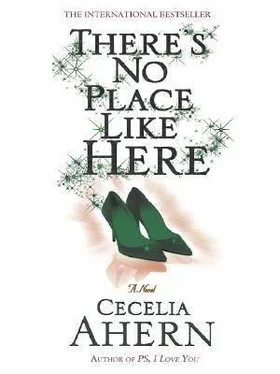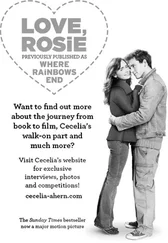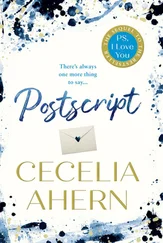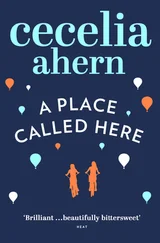“They can wait,” I said, clawing my way through the grass, feeling soil gathering beneath my fingernails.
“They’ve waited long enough,” Helena said forcefully, “and frankly so have you. Now stop trying to avoid the inevitable and come with me now.”
I stopped clawing. There was the word I was so used to hearing from Gregory’s mouth. Avoid. Stop avoiding things, Sandy… Was that what I was doing? How I could be avoiding things by concentrating fully on one thing and refusing to leave it had always been beyond me; surely avoidance meant walking in the other direction. It was people like Gregory, my parents, and now Helena and Joseph, who were avoiding dealing with the fact that something had gone missing and couldn’t be found. I looked up at Helena, who looked doll-like beside Joseph’s huge frame. “I really need to find that watch.”
“And you will,” she said so easily that I believed her. “Things always show up here. Joseph said he would keep an eye out for you and maybe Bobby will know something.”
“Who’s this Bobby that I keep hearing about?” I asked, getting to my feet.
“He works in Lost and Found,” Helena explained, handing me the luggage I had abandoned in the middle of the road.
“Lost and Found.” I laughed, shaking my head.
“I’m surprised you didn’t end up in the front window,” Helena said gently.
“That’s Amsterdam you’re thinking of,” I smiled.
Her forehead wrinkled. “ Amsterdam? What are you talking about?”
Dusting myself off, I left the search scene behind me. “Helena, you have so much to learn.”
“A wonderful piece of advice, coming from someone who spent the last thirty minutes on her hands and knees trawling through muck.”
We left Joseph standing in the middle of the road, hands on his hips, logs and axe by his feet, surveying the dusty path.
I arrived at the Community Hall dressed as Barbara Langley from Ohio. Her legs, it seemed, were far from long and had a penchant for miniskirts and leggings I didn’t even dare try on. The other items she unfortunately missed out on wearing on her New York trip were stripy sweaters with shoulder pads that brushed my earlobes and jackets covered with badges of peace signs, yin-yang emblems, yellow smiley faces, and American flags. I had hated the eighties the first time round; I had no intention of reliving it.
Helena had laughed when she saw me in skin-tight stonewashed jeans that stopped above my ankles, white socks, my own trainers, and a black T-shirt with a yellow smiley face.
“Do you think Barbara Langley was in The Breakfast Club ?” I asked, trudging out of the bathroom like a child who had been forced to replace their play clothes with a dress and tights for Sunday dinner of green vegetables aplenty.
Helena looked confused. “I have no idea what clubs she was a member of, although I do see others wearing those kinds of clothes here.”
I ended up doing what I had been convinced I would never resort to, grabbing marginally more decent items of clothing lying alongside the roads as we made our way to the village.
“We can go to Bobby’s afterward.” Helena had tried to cheer me up. “He has a huge collection of clothes to choose from or else there are a few clothes-makers around.”
“I’ll just get some secondhand clothes,” I insisted. “I won’t be here by the time they finish making me a wardrobe.”
She snorted at that, much to my annoyance.
The Community Hall was a magnificent oak building with a large double-door entrance similar to the others. On it were larger-than-life carvings of people gathered together, arms and shoulders touching and hands holding while their hair and clothes flapped in a breeze trapped in the walls of wood. Helena pushed open the twelve-foot-tall doors and the crowd parted for us.
A stage stood at the top of the forty-foot-long hall; all around it on three sides were rows of solid oak chairs and the same above on a second gallery level. A red velvet curtain parted and was held back on both sides by a thick golden rope. On the entire length of the back wall on the stage was a canvas covered in handprints created by hands dipped in black paint. They were all of different sizes, representing different ages from babies to the elderly as they lined up in a row of at least one hundred across and one hundred down. Above it were two words written in many languages, but reading the English I saw that they meant strength and hope . It was so familiar to me.
“They are the handprints of each person that lives and has lived here over the past three years. Each village has the same in its community hall. I suppose it’s our emblem now for here.”
“I recognize it,” I said, thinking aloud.
“Oh no, you couldn’t.” Helena shook her head. “The Community Hall is the only place you’ll see this in the village.”
“No, I recognize it from home. There is a national monument just like it on the grounds of Kilkenny Castle. Each hand was cast from the actual hand of a relative of a missing person. Beside it is a stone with an inscription of the words,” I said, and closed my eyes and recited the inscription I had run my finger over so many times: “This sculpture and area of reflection is dedicated to all missing persons. May all relatives and friends who visit find continuing strength and hope. The cast of your mother’s hand is there.”
Helena looked as though she was holding her breath as she searched my face, waiting for me to somehow announce that I was joking. I didn’t and she exhaled slowly.
“Well, I don’t know what to say.” Her voice shook and she turned to look at it. “Joseph thought it would be a nice idea for everyone to do that.” She shook her head in disbelief. “Wait until he hears what you’ve told me.”
“Wow,” I said, looking around the rest of the building. It was more like a theater than a community hall.
“This seats twenty-five hundred people,” Helena explained, moving on from what I had told her though understandably seeming somewhat distracted. “The chairs are taken out if we need to hold more but it’s very rare that the entire community will attend anything. It’s used for lots of different things such as a ballot hall, a discussion forum between the elected council and the community, art galleries, debates, even a theater on the rare occasions that plays are staged. The list goes on.”
“Who is on the elected council?”
“A representative from each nation in the village. We have over one hundred nations in this village alone and every village has its own council. There are dozens of villages.”
“So what happens at these council meetings?” I asked with amusement.
“The same as everywhere else in the world; everything that needs discussion and decision is discussed and decided.”
“What are the crime levels here?”
“Minimal.”
“How is it kept that way? I don’t recall seeing the long hand of the law patroling the streets on our way here. How is everyone kept on the straight and narrow?”
“There has been a judicial system in place for hundreds of years. We have a courthouse, a rehabilitation institute, and a security council, but getting every nation to abide by the same rules isn’t always easy. The council at least encourages talk and debate.”
“So this is the sounding house? Do they actually have any power?”
“The power that we have vested in them. Everybody gets one of these in their information pack when they arrive.” Helena took a pamphlet from a display on the wall. “You should have got one too, if you bothered to look through your folder. There are voting guidelines.”
I flicked through the pamphlet, reading aloud: “Vote for those with the ability to listen and to make decisions on behalf of the people in a manner reflecting consensus and serving the well-being of all.” I laughed. “What else is preached, two legs good, four legs bad?”
Читать дальше












